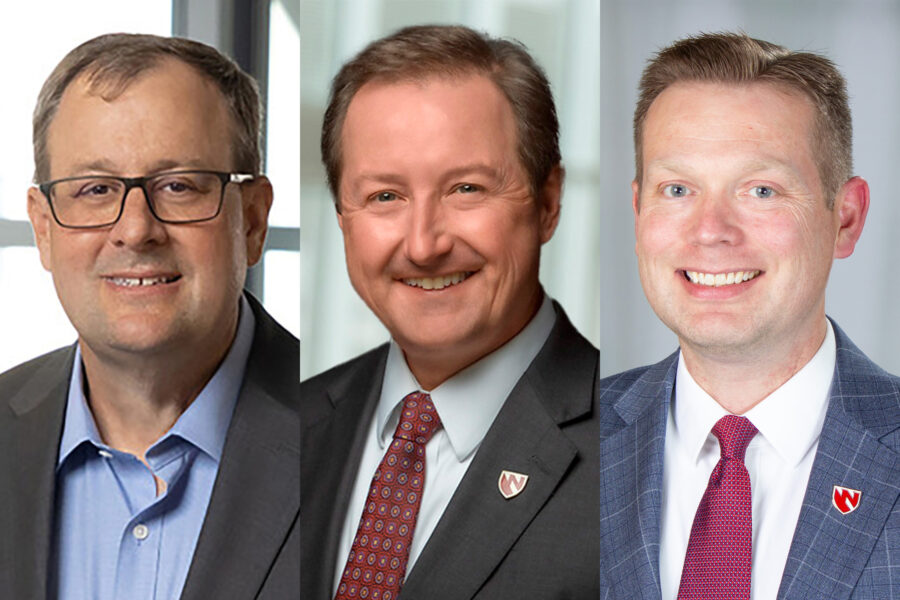UNMC and the University of Nebraska System’s top government relations officials Wednesday offered an “Advocacy and Engagement 101” guide for UNMC staff and students interested in sharing their thoughts on state and federal legislation with elected officials.
UNMC Interim Chancellor H. Dele Davies, MD, emphasized that the topic was meant only for people who feel they’d like to voluntarily advocate more.
In a virtual town hall, Dr. Davies welcomed three government relations leaders: Matt Blomstedt, PhD, associate vice president for government relations for the University of Nebraska System; Chris Kratochvil, MD, vice chancellor for external relations at UNMC; and Jeff Kratz, director of UNMC government relations.
At a time of significant shifts in federal policy and potential university budget cuts by the Nebraska Legislature, Dr. Blomstedt said it’s important for UNMC staff and students to be informed about how they can engage with government officials and offices.
In discussing the different tiers of advocacy, the officials discussed the importance of being collaborative and coordinated as a university in connections with elected officials.
“We’re in this together,” Blomstedt said.
During the webinar, town hall attendees were given guidance on a variety of advocacy issues, including types of advocacy and how best to engage, professional responsibilities and personal rights, and what’s possible, permitted, acceptable and encouraged.
Lobbying itself has a particular meaning and regulations, Blomstedt said. Typically, he said, that involves official representatives of the university undertaking a specific activity – such as testifying before a legislative committee – formally representing and advocating for the university.
Separate from that, Blomstedt said, university employees are permitted to act in their personal capacity on different issues. They have an individual right, he said, to offer their viewpoint and push for a particular outcome on a certain issue.
In those cases, staff and students are urged to specify they are engaging or speaking as private individuals, not in an official university capacity. If emailing an official or office, that would involve sending an email from their personal account, not their university email.
Educating lawmakers also can take many forms, Blomstedt said, and is not necessarily classified as lobbying.
“There’s nuance all the time, but just because you’re offering insights about something that you might have a particular knowledge of, that can be education, and that still could fit in the advocacy role. But it’s appropriate to be able to do that.”
If anyone wants assistance in taking an advocacy position, UNMC and NU government relations staff will offer guidance. For more information or clarification, contact Matt Blomstedt or Jeff Kratz.
UNMC offers information and guidelines to help on its government relations website. Guiding principles also are outlined in this UNMC Today article.
Click Play below to see the government relations officials’ presentation.
